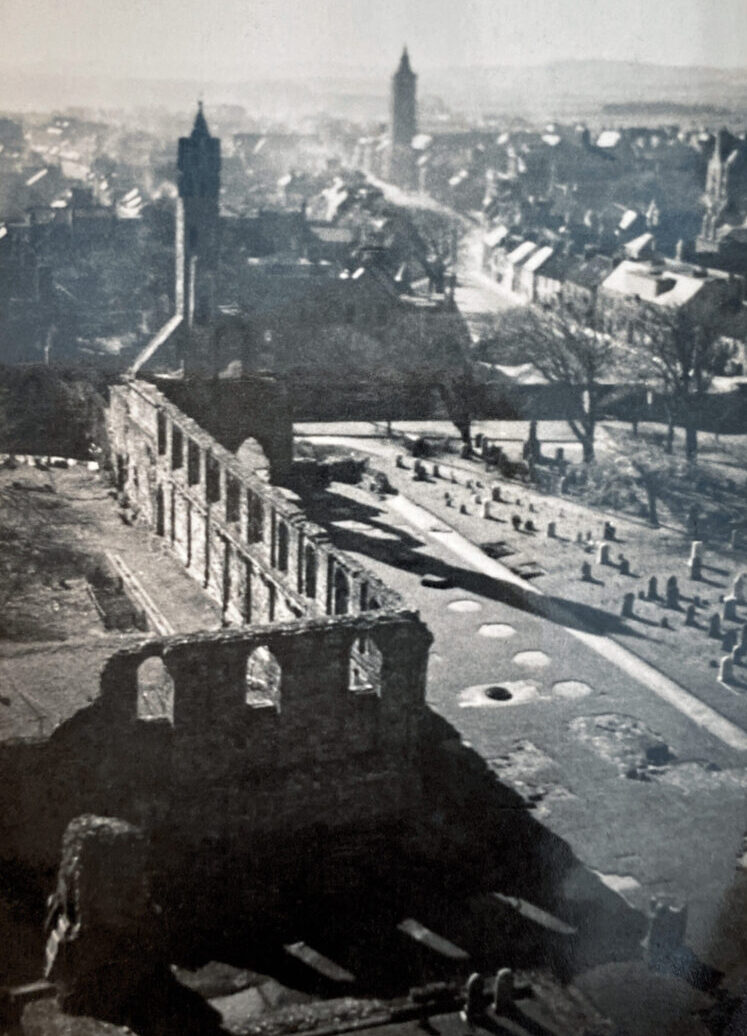Former Polish soldier’s studies at St Andrews recognised
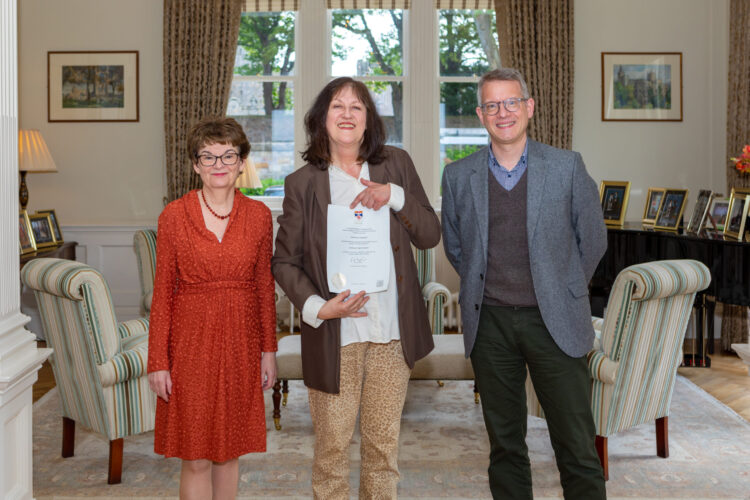
The University of St Andrews welcomed back a special guest this week (Monday 22 May) to tell the story and celebrate the life of Polish soldiers stationed in North East Fife during World War II.
Perhaps best known locally for her Dundee-based crime novel, A Polish Detective, Dr Hania Allen, formerly Vice-Principal (Information) at the University, met with Professor Dame Sally Mapstone FRSE to receive a special certificate marking her late Polish father’s academic achievements while stationed as a soldier in St Andrews.
Dr Allen’s father, Konstanty Szawelski, arrived in St Andrews in the summer of 1940, having been evacuated to the UK from France as part of Operation Aerial. Konstanty was one of the many Polish soldiers stationed in North East Fife during World War II who were involved in building defences along Scotland’s east coast in anticipation of a German invasion.
Thanks to an open invitation from the then Principal, Sir James Irvine, Polish soldiers were able to study for free at the University from 1941 to 1942. While stationed in St Andrews, Konstanty completed three terms of work in General, Special and Honours Economics in just one term, in addition to his duties as a soldier.
While in St Andrews, Konstanty was billeted in a private house called Westerlee that, he said, boasted superb views towards the sea across green fields the Polish soldiers would drill and march over. Keen to do more in the war, Konstanty enlisted with the Polish Second Corps, leaving behind his studies, and the opportunity to graduate, to serve in Iraq, Palestine, Egypt, and Italy.
Dr Allen said her father’s fondness for St Andrews and its people remained, inspiring her to apply to study physics, maths, and astronomy at the University in the 1970s, following which she stayed on to obtain a doctorate in the area of semiconductor physics.
When Dr Allen came to St Andrews to study, she discovered that the Wardlaw Wing had once been a private house called Westerlee and the green fields her father had spoken of had become the North Haugh, now the home of the very science buildings where she was studying.
After a spell as a maths teacher at St Leonards School in St Andrews, Dr Allen returned to the University to work as a senior programmer in the Maths Department’s Solar Physics group and, later, as an IT Officer in IT Services. Following a successful project to replace the University’s finance, student records, payroll and pensions systems, Dr Allen was appointed Vice-Principal (Information).
Dr Allen explained that her father returned to the UK in 1946, relinquishing his commission in 1948. Polish people who fought with Western Allies were arrested or executed on their return to the then Soviet-controlled Communist Poland and, as a result, Konstanty decided to stay in the UK. He married a Polish woman, Irena, a refugee herself who had fought in the Polish resistance. The Polish Resettlement Act of 1947 allowed the couple to remain in the UK: they were naturalised in 1955 and Dr Allen was born in Liverpool in 1959. She came to St Andrews in the 1970s and still lives in Fife.
Dr Allen said: “Dad studied economics at the University while he was here and loved coming back for my graduation in 1975.”
She continued: “Dad had very fond memories of his time in Scotland and spoke often about the warmth and kind hospitality shown by the people of St Andrews. One story he was fond of telling was how he and the other Polish soldiers were taken round the houses during Hogmanay. At each house, they were given a ‘wee dram’, a phrase he still remembered decades later. As he left each dwelling, he shook hands with the host, who left a small silver token in his hand.
“After my parents’ death, I was clearing the house and came across my dad’s army rucksack. It was full of photos he’d taken during the war and, at the bottom of the rucksack, were all these silver tokens, tarnished after so many years. When I counted them and realised that he’d been handed a token after each ‘wee dram’, I doubted he’d have been standing upright by the end of the evening.”
Dr Allen shared some of her father’s old black and white photographs from his time in St Andrews and would love to know if anyone recognises who he is pictured with in these. If you see someone you know in the photos below, please get in touch with the University of St Andrews by emailing [email protected].
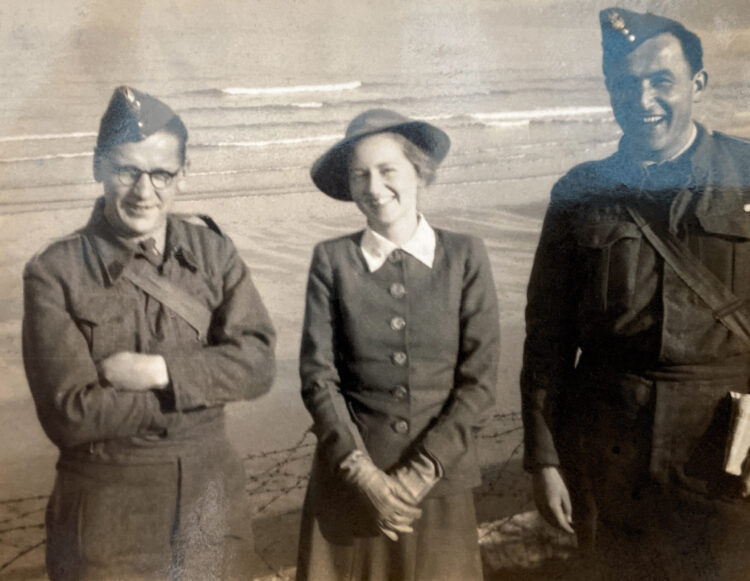
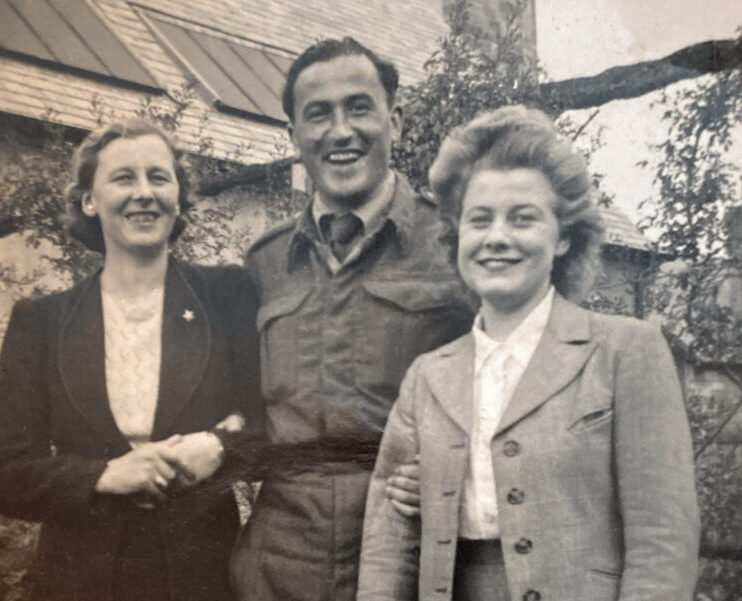
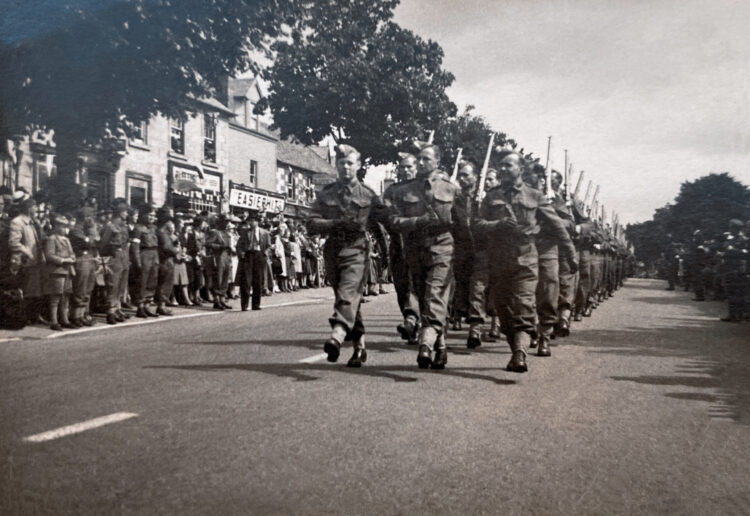
Category Community
